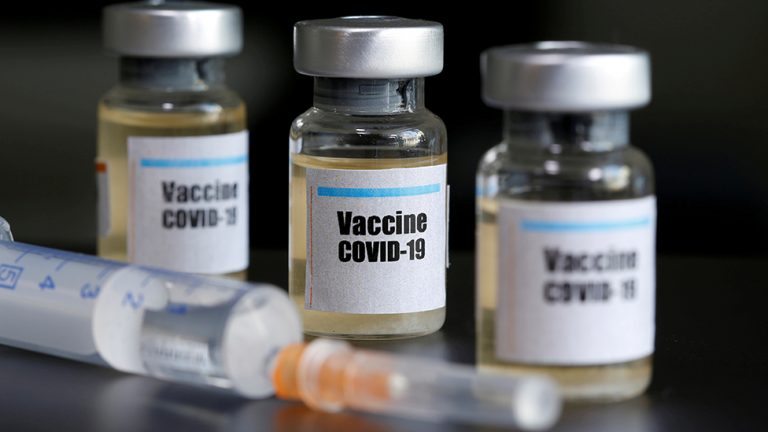Why You Cry After Sex
- Home
- Why You Cry After Sex

Why You Cry After Sex
 Consensual sex with a partner you’re into is supposed to make you feel a lot of things, like sexy, close, ecstatic, blissed out, warm, relaxed… All good stuff…
Consensual sex with a partner you’re into is supposed to make you feel a lot of things, like sexy, close, ecstatic, blissed out, warm, relaxed… All good stuff…
Consensual sex with a partner you’re into is supposed to make you feel a lot of things, like sexy, close, ecstatic, blissed out, warm, relaxed… All good stuff. But, thanks to a growing area of research, we now know that about half of all sex-having people feel a flurry of negative emotions, instead.
Those post-sex blues, more formally called postcoital dysphoria, or PCD, are a common but under-researched and reported phenomenon that causes people to feel sad, angry, depressed, or anxious after an activity that’s supposed to make you feel generally pretty great.
Researchers have a few hypotheses about what could be behind your bedroom tears, and none of them have anything to do with anything being “wrong” with you.
Basically: it’s your sex life you can cry if you want to! But understandably very few people want to spend their precious post-orgasm cuddle time wiping away tears, so to help get to the bottom of your confusing tear ducts, here’s everything you need to know about crying after sex.
Big girls (and boys) do cry
Because research on sex is still—go figure—a field that’s very much growing, one of the first studies on postcoital dysphoria was published in October 2015 with groundbreaking results: Out of 230 female college students surveyed, at least 46 percent had experienced dysphoria after sex at least once in their lifetimes already. That means that just about half of all sexually active women can probably recall feeling melancholic, anxious, angry, depressed, or aggressive after sex, even if the sex (yes, that includes masturbation) was totally great and fine.
Robert Schweitzer, PhD, a psychology professor at Queensland University of Technology in Australia and a lead researcher of the study, says that aboutone percent of the respondents even reported feeling blue after sex every single time they had it. Though this study and most others have only focused on women, Schweitzer published the first research on how postcoital dysphoria affects men just earlier this year in the Journal of Sex and Marital Therapy.
According to those recent findings, men deal with postcoital dysphoria at a very similar rate to women. Among 1,208 men who responded to an online survey, 41 percent said they’d experienced PCD in their lifetime. While the numbers are comprable between men and women, Schweitzer’s 2019 study suggests that men experience the symptoms of PCD differently, in a more complicated and nuanced way than researchers previously thought (part of why it took so long for this study to exist). “Experiencing intense emotions after intercourse may seem particularly jarring because men associate sex with masculinity and vitality,” explains Kimberly Resnick Anderson, a certified sex therapist and professor of psychiatry at UCLA School of Medicine.
Schweitzer says people commonly describe the feeling as “an experience of anger or shame” and “a loss of self.” One 20-year-old man quoted in a 2009 New York Times story on PCD described feeling “literally achy and depressed for about a day.” But a really common description that comes up is “homesickness,” or like you feel out of place in your own body.
None of these feelings are always accompanied by tears, and sometimes tears come without the feelings. Either way, feeling in any way down or depressed after sex is extremely confusing and isolating, but based on these preliminary numbers alone, you’re far from alone in your post-bone blues.
Why you have so many tears left to cry
While a lot more research still needs to be done to figure out the true causes of PCD, Schweitzer says that “there appears to be no relationship between postcoital dysphoria and intimacy in close relationships.” Don’t take before you take your vague, bad feeling post-consensual sex as a sign your relationship is doomed.
“Although there are many theories, we are not certain exactly what cause postcoital dysphoria,” Anderson says. She adds that it’s commonly believed to have a hormonal component tied to the increase of dopamine and prolactin after sex (and especially orgasm).
“Dopamine is considered the ‘foot-on-the-gas’ of the sexual car and prolactin is considered the ‘foot-on-the-brake,” Anderson says. “After the euphoria of orgasm, prolactin may trigger dysphoric feelings.” She also emphasizes that these dysphoric feelings can happen in both healthy and unsatisfying relationships, adding that a lot of people who experience PCD say they’re otherwise very happy with their current partner.
Quoting a woman who answered his initial survey, Schweitzer offers another potential explanation for PCD. He believes that, for a lot of people, the post-sex crash happens because they don’t fully understand what a sexual experience is supposed to feel like. “I’m reading a quote in front of me, ‘Maybe it’s to do with sexual expectations, like sex is meant to be one thing—beautiful and loving—and maybe for me, it’s not,'” Schweitzer reads. “‘After counseling, I wondered if the blues in me could be fixed. It’s confusing, I feel stuck when it happens.'”
Ok so, what do you do about it?
As Anderson says, unless your dysphoria lasts for days or weeks, it’s not likely a sign of any kind of deeper issue. But if your feelings are dredging up a previous trauma or causing you to avoid sex in any kind of way, seek help in the form of a therapist, counselor, or trusted family member or friend. And, if it’s safe to do so, try and explain what’s going on with your partner—they should know what’s happening in your brain and can maybe even help sort it out.
Formal treatment for PCD hasn’t really been hammered out just yet. A 2009 story in the New York Times, written by a psychiatrist who treats patients with PCD, describes using antidepressants like SSRIs (like Prozac, if you’re familiar) to treat post-sex sads. He writes about giving the medication to a few patients to “exploit the usually undesirable side effects of SSRIs for possible therapeutic effect.” And by side effects, he means a generally lower sex drive that some people experience while taking an antidepressant. In his limited trial, he found that while people generally enjoyed sex less intensely while taking the drugs, their mood after sex was more stable.
Still, that’s one experimental trial and isn’t widely used. If your bad feelings are limited solely to the occasional post-sex reflection and aren’t a symptom of general depressive disorder, Schweitzer says there’s no proof of any tie between PCD and other mood disorders. His own research also didn’t find much correlation between a history of abuse and post-sex sadness, though Anderson says that’s one hypothesis among sex therapists as PCD undergoes further necessary research.
The TL;DR
Crying after sex (or feeling sad, empty, etc.) doesn’t mean you’re broken, or that you didn’t just love every minute of the actual sex, or have a mind-blowing orgasm, or are in any way fucked up as a person. If just means you—and probably half the people you know—are affected by a very common, mysterious phenomenon that goes against everything we’ve been led to believe about the ~beautiful~ experience of sex.
Source: Cosmopolitan
- Share
Classic Ghana
Classic Ghana brings you into a fun world of arts, entertainment, fashion, beauty, photography, culture and all things in between. Let’s explore these together!







